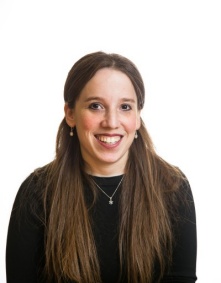Shira Weiss Gives Lecture on Free Will and The Bible

Professor Shira Weiss, of Ben Gurion University presented a lecture titled: "Free Choice and the Bible: The Hardening of Pharaoh's Heart in Philosophical Exegesis"
Write up provided by student, Ryan Smith
"Free Choice in the Bible: The Hardening of Pharaoh’s Heart in Philosophic Exegesis" A lecture by Shira Weiss
Dr. Weiss began her lecture by laying out three varying positions that biblical exegetes have generally taken concerning the issue of free will. First, there are those who assert the liberty of human free choice and responsibility for their actions. Second are those who deny free choice and instead assign agency to some other cause such as biological or theological determinism. Yet in the third case we have a compatibilist’s take on the topic: free will and determinism are not mutually exclusive. Taking the classic biblical example of the Egyptian Pharaoh’s refusal to free the Jews and the refrain that states God “hardened his heart,” Dr. Weiss outlined the views of two medieval Jewish philosophers who wrote about this biblical event in particular and free will more generally.
Beginning with Maimonides (1135-1204), Dr. Weiss made the case for a reading of the medieval thinker that aligned with a more Aristotelian, naturalistic perspective. Maimonides writes that humans have free will, but at the same time defines limits to said free will. Specifically, there is a point at which human sin becomes so terrible that God as supreme judge can make the decision to disallow an individual repentance. This is what has happened in the Pharaoh’s case. But this, Dr. Weiss argued, is not an instance of Maimonides arguing for divine intervention. Rather, she said that the idea of one’s heart being hardened is, for Maimonides, just a fact of natural human psychology, because sin leads one down a road where it becomes increasingly difficult to turn back.
On the other end of the spectrum, Dr. Weiss explained the views of Joseph Albo (1380-1444), who argues that Pharaoh’s heart being hardened is actually God’s way of giving him the opportunity to repent. If God would not have hardened his heart, he would have simply repented out of fear of punishment, but in order for repentance to be a product of free will it must stem from the individual’s self, unswayed by such fear. Although Albo reads the scene in a starkly different manner, Dr. Weiss offered in her talk the idea that both medieval understandings of Pharaoh posit radical human freedom as the primary ethic of the biblical text.